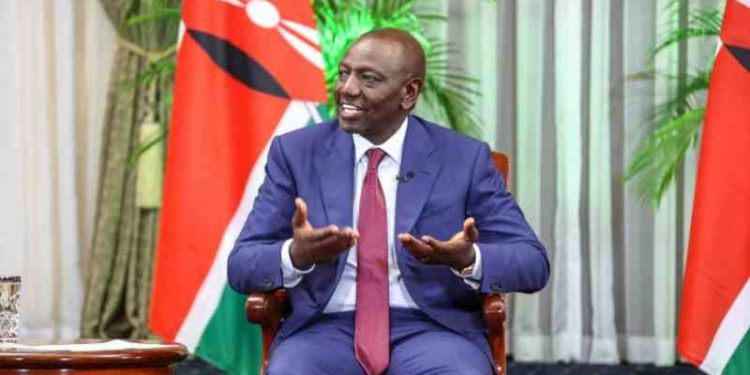On June 30, 2024, hundreds of Kenyans took to the streets of the Central Business District (CBD) to hono those who lost their lives in recent antigovernment demonstrations. The protests were ignited by the government’s decision to substantially raise taxes, a move that has been met with widespread opposition and resulted in the deaths of at least 30 people, according to human rights groups. President William Ruto, however, cited a lower death toll of 19 in a recent television interview and promised a full investigation into the fatalities.
President Ruto, addressing the nation, firmly stated, “I have no blood on my hands,” and defended the actions of the police during the protests. He acknowledged that while the police had done their best under challenging circumstances, any instances of excessive force would be thoroughly investigated and addressed. “We have mechanisms to make sure the excesses are dealt with,” he assured.
The President also issued a stern warning to those involved in the attacks on Parliament and the judiciary, asserting that many of the perpetrators had been captured on CCTV and were currently evading arrest. “Those who attacked Parliament and the judiciary are on CCTV. Many of them are on the run, but we will catch them,” he stated.
In his interview, President Ruto admitted that the government could have communicated better with the public regarding the Finance Bill, which has been at the heart of the unrest. “If given a chance to explain to Kenyans what was in the Finance Bill and what it would have done for them, I think they would agree with me,” he conceded.
The controversy surrounding the Finance Bill and the subsequent protests have highlighted the growing disconnect between the government and the Kenyan populace. Human rights groups had already voiced their concerns about the Bill before the protests escalated, but their warnings were largely ignored by the government. This lack of dialogue has fueled public anger and mistrust, leading to the recent violent demonstrations.
Adding to the tension, the abduction of Alfred Keter, a prominent figure, was captured on camera, raising further questions about police conduct. When journalist Linus inquired about the incident and the distress it caused, particularly the children’s screams heard in the background, President Ruto defended the police’s actions. He explained that Keter had been summoned by the police but failed to appear, justifying the police’s efforts to locate him.
Despite the President’s reassurances, the Kenyan public remains resolute in their demands for accountability and transparency. Protests are set to resume on Tuesday, with demonstrators vowing to continue their fight against what they perceive as an unresponsive government. President Ruto has assured that the police will be present to protect peaceful demonstrators and that the Kenya Defence Forces (KDF) would only be deployed if the situation escalates.
As Kenya braces for further demonstrations, the government’s response and willingness to engage with its citizens will be critical in determining the country’s path forward. The recent protests have underscored the urgent need for effective communication and genuine efforts to address the concerns of the Kenyan people.

















